Related Research Articles

A corporation is an organization—usually a group of people or a company—authorized by the state to act as a single entity and recognized as such in law for certain purposes. Early incorporated entities were established by charter. Most jurisdictions now allow the creation of new corporations through registration. Corporations come in many different types but are usually divided by the law of the jurisdiction where they are chartered based on two aspects: whether they can issue stock, or whether they are formed to make a profit. Depending on the number of owners, a corporation can be classified as aggregate or sole.
Standard Oil Company, Inc., was an American oil production, transportation, refining, and marketing company that operated from 1870 to 1911. At its height, Standard Oil was the largest petroleum company in the world, and its success made its co-founder and chairman, John D. Rockefeller, among the wealthiest Americans of all time and among the richest people in modern history. Its history as one of the world's first and largest multinational corporations ended in 1911, when the U.S. Supreme Court ruled that it was an illegal monopoly.

The Sherman Antitrust Act of 1890 is a United States antitrust law which prescribes the rule of free competition among those engaged in commerce. It was passed by Congress and is named for Senator John Sherman, its principal author.
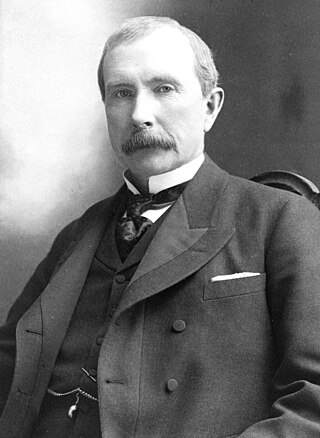
John Davison Rockefeller Sr. was an American business magnate and philanthropist. He was by most definitions the wealthiest American of all time and the richest person in modern history. Rockefeller was born into a large family in Upstate New York who moved several times before eventually settling in Cleveland. He became an assistant bookkeeper at age 16 and went into several business partnerships beginning at age 20, concentrating his business on oil refining. Rockefeller founded the Standard Oil Company in 1870. He ran it until 1897 and remained its largest shareholder. In his retirement, he focused his energy and wealth on philanthropy, especially regarding education, medicine, higher education, and modernizing the American South.
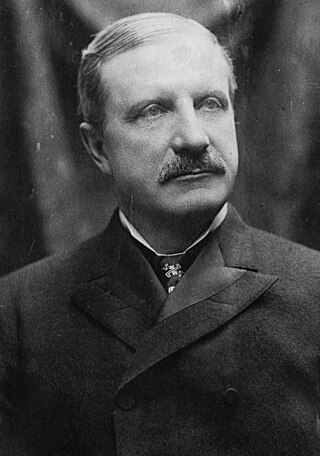
William Avery Rockefeller Jr. was an American businessman and financier. Rockefeller was a co-founder of Standard Oil along with his elder brother John Davison Rockefeller. He was also a part owner of Anaconda Copper, which was the fourth-largest company in the world by the late 1920s. Rockefeller started his business career as a clerk at 16. In 1867, he joined his brother's company, Rockefeller, Andrews & Flagler, which later became Standard Oil. The company was eventually split up by the Supreme Court in 1911. Rockefeller also had a significant involvement in the copper industry. In 1899, Rockefeller and Standard Oil principal Henry H. Rogers joined with Anaconda Company founder Marcus Daly to create the Amalgamated Copper Mining Company, which later returned to the name Anaconda Copper.

The Archer-Daniels-Midland Company, commonly known as ADM, is an American multinational food processing and commodities trading corporation founded in 1902 and headquartered in Chicago, Illinois. The company operates more than 270 plants and 420 crop procurement facilities worldwide, where cereal grains and oilseeds are processed into products used in food, beverage, nutraceutical, industrial, and animal feed markets worldwide.
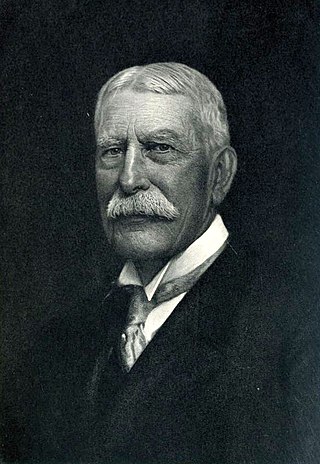
Henry Morrison Flagler was an American industrialist and a founder of Standard Oil, which was first based in Ohio. He was also a key figure in the development of the Atlantic coast of Florida and founder of the Florida East Coast Railway. He is also known as a founder of the cities of Miami and Palm Beach, Florida.

Henry Huttleston Rogers was an American industrialist and financier. He made his fortune in the oil refining business, becoming a leader at Standard Oil. He also played a major role in numerous corporations and business enterprises in the gas industry, copper, and railroads. He became a close friend of Mark Twain.
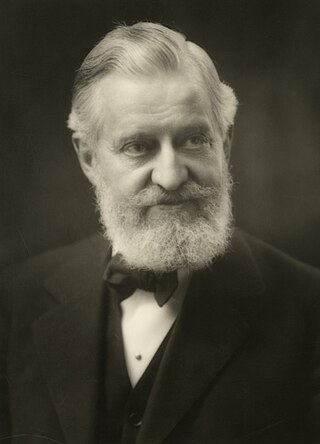
Henry Clay Folger Jr. was president and later chairman of Standard Oil of New York, a collector of Shakespeareana, and founder of the Folger Shakespeare Library.

Charles Pratt was an American businessman. Pratt was a pioneer of the U.S. petroleum industry, and he established his kerosene refinery Astral Oil Works in Brooklyn, New York. He then lived with his growing family in Clinton Hill, Brooklyn. He recruited Henry H. Rogers into his business, forming Charles Pratt and Company in 1867. Seven years later, Pratt and Rogers agreed to join John D. Rockefeller's Standard Oil.

Astral Oil Works was an American oil company specializing in illuminating oil, and based in Brooklyn, New York. Astral Oil was a high-quality kerosene used in lamps and noted for being relatively safe. It was founded by Charles Pratt. Charles Pratt and Company became part of John D. Rockefeller’s Standard Oil Trust in 1874, although the fact that Astral Oil was a New York branch of Standard Oil in Ohio was not made public until 1892.

The Northern Securities Company was a short-lived American railroad trust formed in 1901 by E. H. Harriman, James J. Hill, J.P. Morgan and their associates. The company controlled the Northern Pacific Railway; Great Northern Railway; Chicago, Burlington and Quincy Railroad; and other associated lines. It was capitalized at $400 million, and Hill served as president.
Standard Oil Co. of New Jersey v. United States, 221 U.S. 1 (1910), was a case in which the Supreme Court of the United States found Standard Oil Co. of New Jersey guilty of monopolizing the petroleum industry through a series of abusive and anticompetitive actions. The Court's remedy was to divide Standard Oil into several geographically separate and eventually competing firms.

Feargus O'Conner Bowden Squire, often referred to as F. B. Squire, was an executive with the Standard Oil Company and former mayor of Wickliffe, Ohio. He is well known in the petroleum industry for introducing a number of innovations, such as the tanker truck and door-to-door delivery of refined oil, and for financing a breakthrough in the mining of sulfur.

A trust or corporate trust is a large grouping of business interests with significant market power, which may be embodied as a corporation or as a group of corporations that cooperate with one another in various ways. These ways can include constituting a trade association, owning stock in one another, constituting a corporate group, or combinations thereof. The term trust is often used in a historical sense to refer to monopolies or near-monopolies in the United States during the Second Industrial Revolution in the 19th century and early 20th century. The use of corporate trusts during this period is the historical reason for the name "antitrust law".

Atlantic Petroleum was an oil company in the Eastern United States headquartered in Philadelphia, Pennsylvania, and a direct descendant of the Standard Oil Trust. It was also one of the companies that merged with Richfield Oil Corporation to form the "AtlanticRichfield Co.", later known as ARCO.
United States v. American Tobacco Company, 221 U.S. 106 (1911), was a decision by the United States Supreme Court, which held that the combination in this case is one in restraint of trade and an attempt to monopolize the business of tobacco in interstate commerce within the prohibitions of the Sherman Antitrust Act of 1890. As a result, the American Tobacco Company was split into four competitors.

Florida National Bank (FNB), founded in 1905, was the second largest commercial bank in Florida. Florida National Group was acquired in 1990 by First Union Corporation, which was renamed Wachovia in 2001; Wachovia was subsequently acquired by Wells Fargo in 2008.
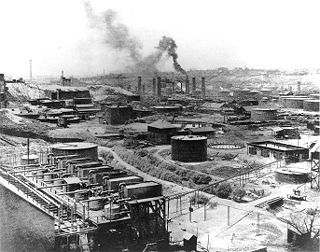
The history of United States antitrust law is generally taken to begin with the Sherman Antitrust Act 1890, although some form of policy to regulate competition in the market economy has existed throughout the common law's history. Although "trust" had a technical legal meaning, the word was commonly used to denote big business, especially a large, growing manufacturing conglomerate of the sort that suddenly emerged in great numbers in the 1880s and 1890s. The Interstate Commerce Act of 1887 began a shift towards federal rather than state regulation of big business. It was followed by the Sherman Antitrust Act of 1890, the Clayton Antitrust Act and the Federal Trade Commission Act of 1914, the Robinson-Patman Act of 1936, and the Celler-Kefauver Act of 1950.
The history of corporate law in the United States concerns the development of the corporation, primarily as a business organization, under the different United States corporate law, including federal regulation.
References
- ↑ Foner, P.S. (1964) History of the labor movement in the United States. International Publishers Company. p 13.
- 1 2 "Sues to dissolve Linseed Oil Trust" (PDF). The New York Times. 1 July 1920. Retrieved 24 January 2008.
- ↑ "Clark Woodman Found Dead: Supposed Suicide of a Millionaire Citizen of Omaha" (PDF). The New York Times. 21 August 1891. Retrieved 23 January 2008.
- ↑ Morris, C.R. (2005) The Tycoons: How Andrew Carnegie, John D. Rockefeller, Jay Gould, And J.P. Morgan invented the American supereconomy. Times Books. p 194.
- ↑ "The Attorney-General of Illinois Seeks to Annul the Charter of the National Linseed Oil Company". Paint, Oil and Chemical Review. 21: 19. 15 Jan 1896.
- ↑ "The Linseed Oil Trust. Assets Said to be $6,000,000 Over All Liabilities" (PDF). The New York Times. 22 September 1898. Retrieved 25 January 2024.
- ↑ Whiting Baker, C. (1899) Monopolies and the People. Xinware Corporation. p 15.
- ↑ "Linseed Goes on Tumbling". Chicago Tribune. Chicago Tribune. 8 June 1899. p. 5.
- ↑ Goodsell, Charles M.; Wallace, Henry Edward, eds. (1900). The Manual of Statistics: Stock Exchange Hand-Book. Vol. 22. New York: Charles H. Nicoll.
- ↑ "The Week's Record". The Commercial West. 1 (15): 10. 22 June 1901.